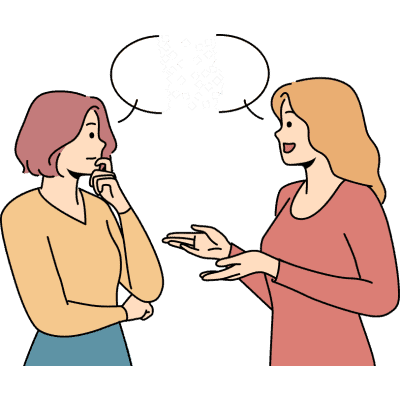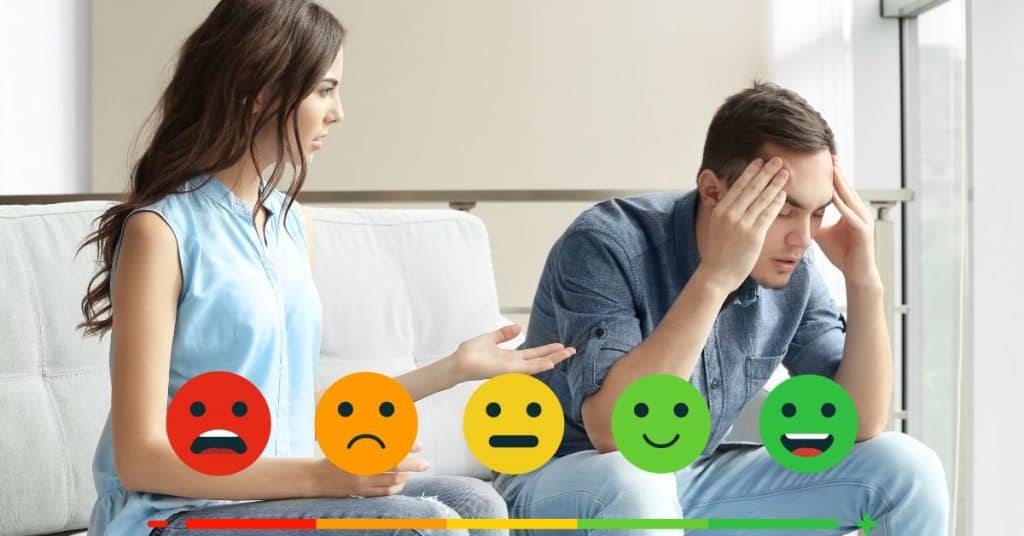There are some universal truths when it comes to romantic relationships, and one of them is that if you are in a partnership with someone, you are going to argue.
It’s a completely normal thing, but a lot of times, conflict in a relationship is avoided. Even in the healthiest, happiest, emotionally intelligent relationship, you and your partner will inevitably experience conflict. This is actually NOT a bad thing.
Conflicts in relationships occur partly because they are dealing with two personalities with different goals, desires, and needs. Because none of us live a frictionless existence–no matter how hard some of us try–there will be times when those goals, desires, or needs will interfere with each other.
They can be big or significant, like differences in religious beliefs or differences in the desire to have children—or they can be small and insignificant like he always wants to watch action movies and she wants to watch nothing but rom coms.
But, just because you have a conflict doesn’t mean you have to have a knockdown, drag-out fight or that the argument will be destructive and ruin the relationship. Figuring out how to navigate the conflict helps us avoid a brawl that would make Chernobyl look like a small kitchen grease fire.
Here’s how to navigate conflict properly when emotions are running high and resolve it before it gets out of hand!

Stop Avoiding the Conflict
Okay, let’s talk about a mistake that many people make, especially in the honeymoon phase of a relationship. One of the worst things you can do for the long-term health of your relationship is to try to avoid conflict in the first place.
This often—not always, but most of the time—comes from a place of good intentions. Many people make the mistake of thinking that in a “perfect” relationship, there should be no conflict. According to them, the more you fight, the more it shows that something is wrong. Although this is not completely wrong, some people will take it too far. For them, this often manifests in a cult-like mentality; fighting means that there is something wrong in the relationship, while not fighting means that everything is honky dory.
Sometimes, a couple just tries to swallow their frustrations and say nothing for fear of consequences. They may think that the resolution of the conflict is much less important than the potential consequences of expressing their opinion. So they go along with what their partner wants to sidestep a potential argument.
There is no real benefit in just trying to avoid a fight. You may be afraid that having an awkward conversation can damage the relationship, but not talking to your partner can really damage the relationship in the long run.
Simple conflict avoidance, constant submission, or simply refusing to participate does not eliminate the problem. All they do is cause the couple to suppress their emotions until the pressure overwhelms them, or their anger builds and ends up in the emotional equivalent of a teapot blowing its lid. Instead of actually preventing conflict, it builds and builds. And when the pressure is past their breaking point, they explode…often over the tiniest thing that has nothing to do with what they are angry about.
If the couple has a falling out over something as small as doing the dishes, it often amounts to a “confrontational” argument. It can be good to accommodate your partner’s wants and needs (or vice versa) to stop a fight or prevent one in the first place, especially if a small sacrifice leads to a greater level of satisfaction and happiness for your partner.
Likewise, avoiding the fight is actually not a bad thing. If you’re someone who has trouble thinking clearly when your emotions are running high, it’s a good idea to end an argument before it gets heated. Then, when you circle back to it, you can actually solve the problem without high emotions taking center stage.
However, there is a difference between knowing when to pick your battles and avoiding all forms of conflict. Arguments don’t mean the relationship is in trouble. And some couples are so passionate that big shows of emotion are their entire vibe.
But it’s not how you fight, it’s whether the reasons for the argument are resolved afterward—this says a lot about any underlying problems in your relationship that you may need to address.

Don’t Try to Fix the Problem, Try to Understand the Problem
Trying to fix the conflict in your relationship: It won’t do you any good if you don’t know what the problem is. In fact, the difference between the problem you’re having and the problem you’re trying to fix can be like night and day. You need to be less interested in the symptom and more invested in the root cause. Treating the symptoms will ultimately not change anything; the main problem is not solved, and new symptoms will keep popping up.
A classic example is (of course) who does or does not do housework, especially cleaning chores. It seems pretty simple on the surface; Mary does most of the housework and wants John to contribute more. But where things get complicated is that the seemingly obvious solution—John gets off his butt and empties the dishwasher or runs the vacuum once in a while—doesn’t really fix things. In fact, Mary may still be upset after he helps out around the house. Again, this seems silly; the dishes are in their rightful places, the carpets are clean, and the problem is solved, right? Wrong! So why is Mary still mad after John did what she wanted?
The root problem is that John didn’t offer to help. Only when Mary asked directly did he get to work. So now he’s confused (and angry) because he did what Mary asked, and it wasn’t enough. Meanwhile, Mary was upset because she had to ask him to help—she wanted him to know he should pitch in intuitively.
The conflict was not solved here and will likely continue to happen until this couple communicates.
Before you try to fix something, you want to make sure you understand the problem from your partner’s perspective. Even if you’re the one raising the issue or saying there’s a conflict, you need to make sure you really understand what your partner is saying, feeling, and asking. You need to be on the same page!
One way to avoid this particular connection is to use what is called active listening—this is a common style where you listen to what the other person is saying and repeat it in your own words to make sure you understand what they are saying. So, in the case of Mary and John, being willing to actively listen and then interpret what they hear makes a world of difference.
John heard Mary asking for something, but he was missing some important factors. Now Mary can explain things more clearly: “I want you to do more housework than you want because I feel like you put all the responsibility on me while you relax and enjoy yourself. It makes me feel like a parent, not a partner to you.”
After John and Mary clear up their misunderstandings, they are able to resolve the real issue—that John’s inaction was the thing that hurt Mary.

Know Their Communication Style
Let’s talk about the most important part of resolving conflicts in your relationship: really understanding what your partner is saying. More importantly, you need to know how they communicate.
One of the reasons why relationship conflicts flare up again and again, despite our best efforts, is that basic communication breaks down, and even active, reflective listening cannot help bridge the gap, at least if you don’t speak the same language as your partner.
Everyone has their own way of communicating, and we all think our way is universal. But clear communication to us can be as murky as mud to others. Understanding your partner’s communication style (and love language!) is a huge part of resolving conflict in your relationship.
Take crying, for example—a lot of men legit get angry or upset if their female partner starts crying during an argument. It feels like manipulation to them; the mean man made his GF cry. This is a toxic trope about masculinity—that men are often uncomfortable showing their emotions openly. But in the real world, we express emotions in all kinds of ways. Some cry when they are angry, and some yell. And there are those who cry when they’re happy!
When emotions are running high, it’s hard to think clearly—and when someone is screaming at you, it can be scary and make you shut down or retreat. Some people are loud when they aren’t angry—it’s how they communicate. They can yell and be expressive when they aren’t angry, but if you don’t communicate in that way, it can be intimidating.
On the other hand, some people turn into mimes when they are upset or angry, which can be interpreted as they don’t care or even arrogance.
One man’s argument is another’s friendly banter; volume and intensity are mistaken for aggression and anger because that’s how they interpret it.
Most people are not necessarily aware of their communication style; they don’t notice and just assume others will “get” it. This is why it’s so important to communicate and know your and your partner’s communication styles—it can be super helpful in relation to avoiding misunderstandings in this particular department.
After all, the point of resolving conflicts in your relationship is not about who wins or loses, who is right or wrong, or who gets their way. Ultimately, it’s about fixing the problem in the best way for everyone and the relationship.
Takeaways
Navigating conflicts in a relationship is not about winning or being right; it’s about finding a resolution that benefits everyone involved. By understanding the real issues, communicating effectively, and recognizing (and using) each other’s communication styles, you can get through conflicts much more effectively, which equals a healthier, happier relationship!




